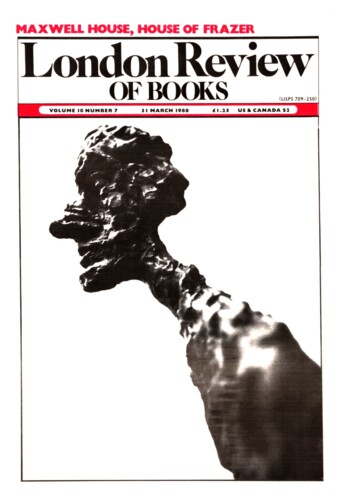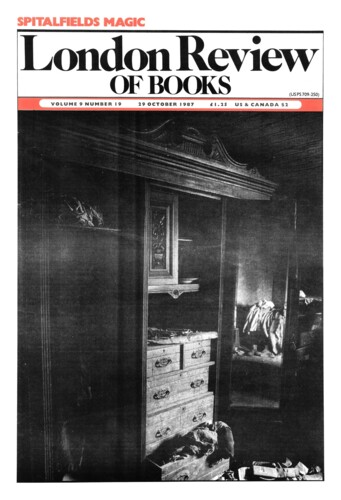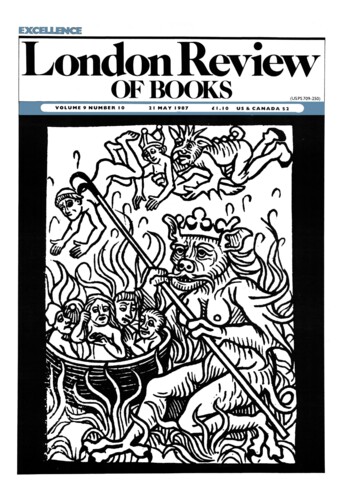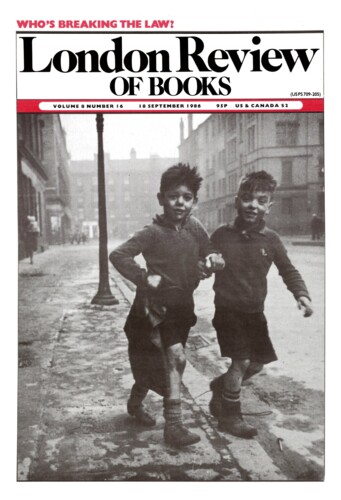Diary: The Deer Park or the Tank Park?
Patrick Wright, 31 March 1988
In 1979 Mr Wilfrid Weld commissioned an ecological and historical survey of his 12,500-acre estate in south Dorset. The survey was partly financed through the Manpower Services Commission, and its findings appeared in an impressive publication late last year. Working as I have been recently on the cultural history of this area, I was interested to know more and went down to Lulworth to meet Mr Weld.




